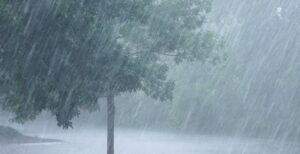Why Stomach Infections Surge During Monsoon And How You Can Stay Safe

Why Stomach Infections Surge During Monsoon And How You Can Stay Safe
As the monsoon clouds gather and rain brings relief from the scorching summer heat, it also brings a host of health challenges. Experts warn that this season sees a rise in cases of gastroenteritis, food poisoning, and other stomach infections. The joy of rain is often accompanied by the risk of contaminated food and water, which can quickly turn dangerous if preventive steps are not followed.
Why Stomach Flu Rises During Monsoon
One of the biggest reasons for the increase in stomach-related ailments during the rainy season is water contamination. With heavy rainfall, sewage lines often mix with rainwater, increasing the risk of viral and bacterial infections in the water supply. Drinking this water without proper treatment becomes a major cause of stomach infections like gastroenteritis.
Health experts also point to the humid environment that monsoons create. High moisture and warmth provide the perfect breeding ground for harmful microbes. Bacteria like E. coli and Salmonella and viruses such as norovirus and rotavirus thrive in these conditions and are responsible for most stomach-related illnesses.
Loose food hygiene is another major concern. During this season, many people continue to eat outside or consume raw vegetables and fruits sold on streets, often without checking how or where they were stored. These foods, when left exposed in the damp, become easy targets for contamination from flies, dust, and unclean surfaces.
Experts also highlight that the irregular weather and constant exposure to changing temperatures impact the body’s immunity. This weakens the ability to fight off infections, especially in children, elderly people, pregnant women, and those with underlying health conditions. Urban challenges such as poor drainage and overburdened sanitation systems only make matters worse, contributing to stagnant water, which becomes a breeding ground for bacteria and parasites.
How to Stay Safe From Monsoon Infections
To avoid falling sick during the monsoon season, doctors strongly advise against consuming outside food, especially items that are undercooked or not served hot. Eating freshly cooked, steaming food at home is one of the best ways to keep infections away. Foods like eggs or meat should never be eaten undercooked, as they carry a higher risk of harboring harmful bacteria.
Boiled water should be your only source of drinking water during the rainy season. It is suggested to boil water in large quantities and store it in clean containers with proper lids. If travelling, carry your own water bottle and avoid drinking from public sources.
Hand hygiene is another important step in preventing infection. Washing hands with soap before meals or using hand sanitizer while on the go can significantly reduce the risk of stomach ailments.
People with low immunity or those recovering from illness should be extra cautious. Swimming in public pools or open water bodies during the monsoon is discouraged, as it may expose them to more germs and infections.
Doctors say that simple steps like maintaining hygiene, eating home-cooked food, drinking safe water, and being mindful of symptoms can go a long way in staying healthy during the rains. If symptoms like vomiting or diarrhea persist, it is important to consult a doctor at the earliest. Prevention, they say, is better than cure, especially during the unpredictable monsoon months.











